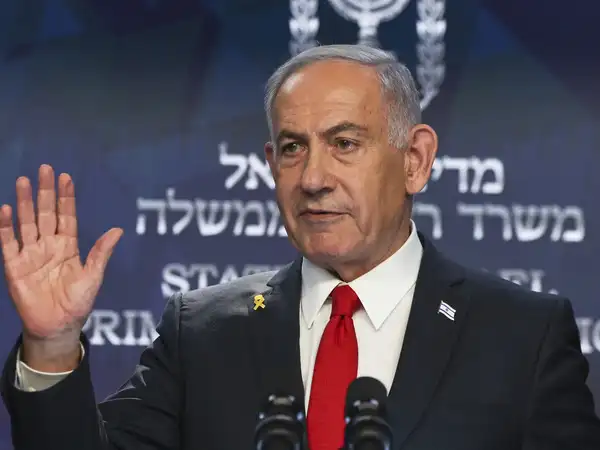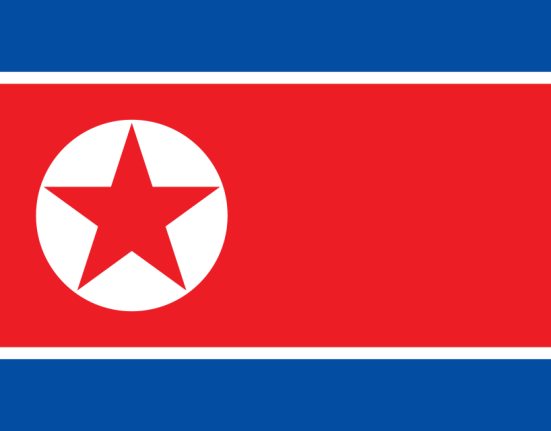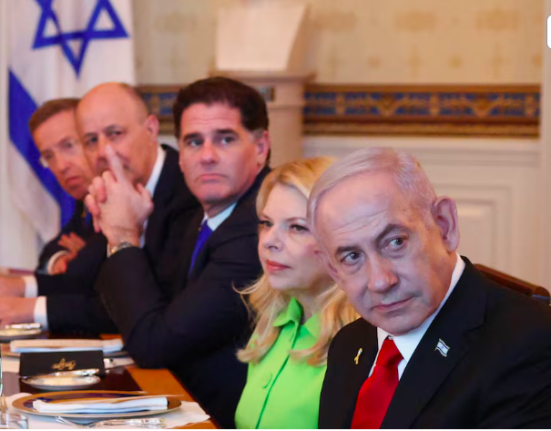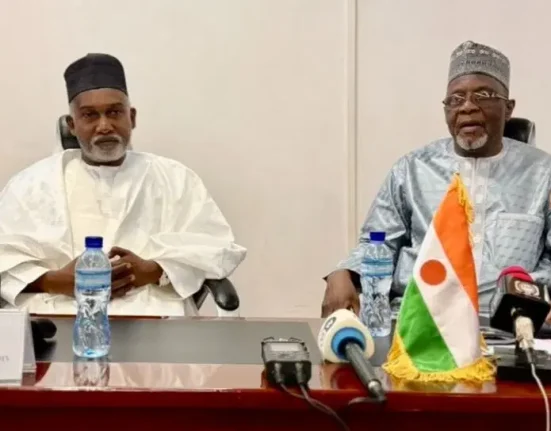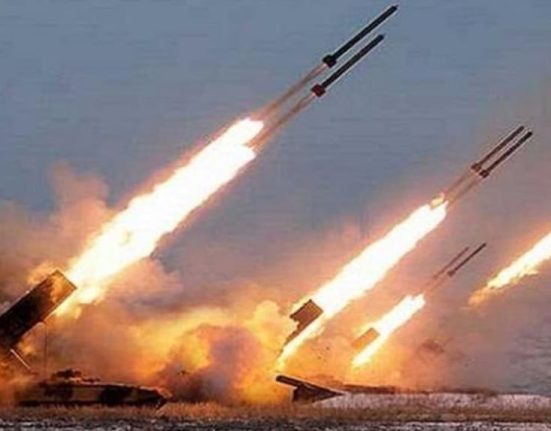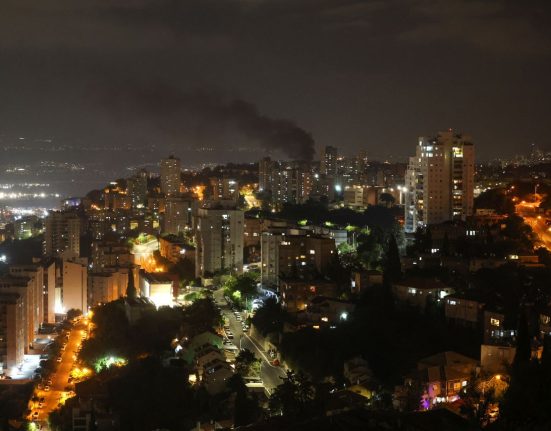BRUSSELS, Belgium – Amid escalating tensions in the Middle East, international calls are intensifying for an immediate halt to Israeli Prime Minister Benjamin Netanyahu’s military operations, which many fear could lead to catastrophic global consequences. On June 15, 2025, demonstrators gathered in Brussels under the banner of “Red Line for Gaza,” a global campaign advocating for a ceasefire in Gaza and economic sanctions against Israel. A woman at the protest held a striking placard reading, “Wanted for crimes against humanity: Benjamin Netanyahu,” capturing the anger of thousands rallying alongside her. The protest was backed by an array of civil society groups, trade unions, and human rights organizations, all unified in their demand for justice and de-escalation.
The growing unrest comes as Netanyahu accelerates military efforts that experts fear could spiral into a broader regional war, involving several nuclear-armed nations. For nearly three decades, Netanyahu has played a central role in shaping Israel’s aggressive foreign policy, particularly in its dealings with neighboring Arab and Muslim nations. With his latest moves indicating a direct confrontation with Iran, observers around the world are warning that the stakes have never been higher. There are now serious concerns that the situation could devolve into a nuclear standoff with dire global repercussions.
Netanyahu’s ideological and political lineage traces back to right-wing Zionist figures such as Ze’ev Jabotinsky, Yitzhak Shamir, and Menachem Begin, leaders who promoted the use of force and intimidation to secure Israeli control over all of historic Palestine. These early leaders of the Likud Party, which Netanyahu now heads, advocated for the expansion of Israeli sovereignty across all land between the Jordan River and the Mediterranean Sea, effectively denying Palestinian claims to statehood. Though such positions contravene established international law and the United Nations-endorsed two-state solution, Likud’s platform has remained steadfastly committed to this vision.
Since assuming office, Netanyahu has consistently pursued policies aimed at reshaping the geopolitical dynamics of the Middle East, often with the assistance of U.S. neoconservative allies. As early as 1996, Netanyahu and a circle of American advisors introduced the now-infamous “Clean Break” doctrine, a policy paper recommending that Israel abandon peace negotiations and instead work to remap the Middle East by undermining hostile governments, using American military power as the primary tool.
This strategy was set into motion following the September 11 attacks in the United States. According to retired U.S. General Wesley Clark, the American government developed plans to target and destabilize seven countries within five years, Iraq, Syria, Lebanon, Libya, Somalia, Sudan, and Iran, all nations seen as obstacles to Israeli strategic dominance. The U.S. invasion of Iraq in 2003, a campaign Netanyahu strongly endorsed during testimony before the U.S. Congress, marked the beginning of this broader plan. At the time, Netanyahu promised lawmakers that the fall of Saddam Hussein would lead to a wave of democratic change across the Middle East. Instead, the war unleashed long-term instability and widespread suffering, with none of the promised democratic dividends.
In the years that followed, the U.S. and its allies continued the campaign through proxy wars, coups, and direct military interventions, from NATO’s devastating intervention in Libya to covert CIA operations in Syria. Throughout, Netanyahu remained either an enthusiastic supporter or a behind-the-scenes instigator. Many of these wars left their targeted countries in ruins, turning once-stable states into battlegrounds for sectarian violence and foreign interference.
Netanyahu’s efforts culminated in September 2023, when he addressed the United Nations with a controversial map showing a “New Middle East”, a vision that conspicuously omitted any mention of a Palestinian state. By September 2024, he expanded this portrayal, dividing the region into areas of “blessing” and “curse,” branding nations like Lebanon, Syria, Iraq, and Iran as malign actors that required regime change. Analysts view this rhetoric as a prelude to the ongoing Israeli aggression against Iran, which Netanyahu now frames as essential to regional stability.
The official justification for the campaign against Iran remains its alleged nuclear ambitions. Yet this claim has been made repeatedly over the past three decades without evidence. Since the early 1990s, Netanyahu and other Israeli officials have insisted that Iran was just “a few years away” from acquiring nuclear weapons, a warning repeated almost every year with changing deadlines. In 2012, Netanyahu even told the UN that Iran was “months, possibly weeks” away from having enough enriched uranium for a bomb. Despite these repeated alarms, international monitoring agencies, including the International Atomic Energy Agency (IAEA), have consistently found no concrete evidence that Iran is pursuing a nuclear weapon.
In fact, Iran has long declared its intention to avoid nuclear arms. Supreme Leader Ayatollah Ali Khamenei issued a religious decree in 2003 prohibiting the development and use of nuclear weapons, a position Iran has reiterated at multiple international forums. Moreover, Iran has actively pursued diplomacy. The landmark Joint Comprehensive Plan of Action (JCPOA), signed in 2015 with the U.S., UK, France, Germany, China, and Russia, placed stringent checks on Iran’s nuclear program in exchange for the lifting of crippling economic sanctions.
Despite Iran’s compliance, former U.S. President Donald Trump—under heavy pressure from Netanyahu and pro-Israel lobby groups, withdrew from the agreement in 2018. This move was widely condemned, as it undermined a functioning deal and weakened international trust in diplomatic agreements. Iran subsequently increased its uranium enrichment levels, a decision it said was meant to regain bargaining power for a new deal. Even then, Iran continued to call for a return to negotiations, a call that has been largely ignored by both the Trump and Biden administrations.
Tensions further escalated in April 2021, when Israel’s intelligence agency, Mossad, carried out a sabotage operation against Iran’s Natanz nuclear facility. Iran responded by boosting enrichment levels again, while simultaneously urging the global community to support a renewed version of the JCPOA. However, Washington has remained resistant to reentering the agreement, a stance many attribute to Netanyahu’s enduring influence on U.S. foreign policy.
Critics argue that Netanyahu’s ultimate goal is not the containment of nuclear weapons but the outright destruction of the Iranian regime. His aggressive tactics, combined with decades of anti-Iran rhetoric, suggest a preference for war over diplomacy. With several nuclear powers now drawn into the escalating conflict, experts warn that the risk of a global war is rising rapidly.
As protests continue around the world, including in major European capitals and across the Global South, pressure is mounting on world leaders to rein in Netanyahu’s actions. There is growing consensus among international observers, including former diplomats and peace activists, that unchecked aggression could ignite a conflict far deadlier than any the region has seen in modern times.
For many, the question is no longer whether Netanyahu will be stopped, but whether he can be stopped in time to prevent a devastating war that could affect us all.

